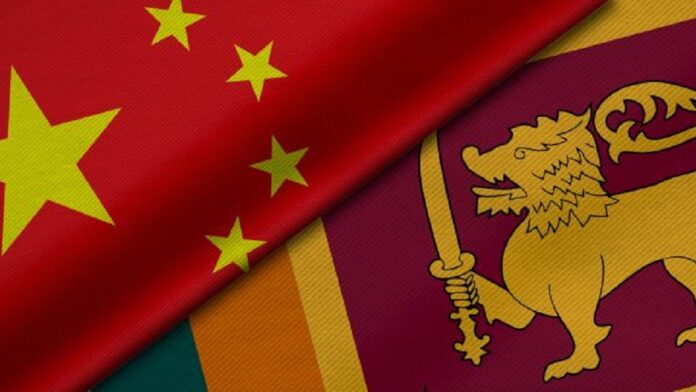By: Staff Writer
Colombo (LNW):China now seems to pressure Sri Lanka into entering into a Free Trade Agreement (FTA) under the guise of helping to restructure debt repayments following the delayed assurance for the restructuring of its debt with some conditions.
In early this year the Export-Import Bank of China offered Sri Lanka a two-year moratorium on its debt and said it would support the country’s efforts to restructure multilateral debt.
By end-2020, Sri Lanka owed China Exim Bank US $ $2.83 billion or 3.5% of the island’s external debt, according to IMF data.
In total, Sri Lanka was indebted to Chinese lenders $7.4 billion, or nearly a fifth of public external debt, by end-2022, calculations by the China Africa Research Initiative showed.
Sri Lanka expects China to support its effort to restructure debts and help it begin repaying its obligations, according to the nation’s central bank governor Nandalal Weerasinghe
However China is to make use of its strong bargaining power over Sri Lanka to demand the signing of the FTA without delay, informed official sources claimed.
According to experts, the disadvantage for Sri Lanka is that China’s FTAs restrict the use of para-tariffs, such as the import levy used by Sri Lanka.
The China – Sri Lanka FTA would open up new markets for Chinese businesses while providing Sri Lankan businesses with access to China’s vast consumer market.
However, critics argue that the deal would be heavily skewed in favour of China, leading to a flood of cheap Chinese goods into Sri Lanka and undermining the country’s domestic industries.
Moreover, some experts suggest that China’s efforts to push for the FTA may be part of a broader strategy to gain greater influence over Sri Lanka.
For a country like Sri Lanka, whose exports are confined to a few products, an agreement that reduces barriers to trade on thousands of other products but excludes these key exportable products from the world and from China will fail to facilitate Sri Lanka’s export growth.
One of the potential disadvantages of signing the FTA with China is the risk of job losses. Sri Lanka’s labour-intensive industries, such as textiles and apparel, could face increased competition from cheaper Chinese imports, leading to potential job losses in these sectors.
Sri Lanka has prepared a list of 451 export goods for tariff concessions under the proposed Sri Lanka-China Free Trade Agreement (SLCFTA), while China too has prepared a similar number of export goods to be demarcated as eligible for concessions.
Negotiations on the SLCFTA commenced in 2016, but came to a virtual standstill by 2018. This was due to Sri Lanka’s insistence on reviewing the agreement every 10 years, to which China was strongly opposed due to its desire to maintain long-term stability.

